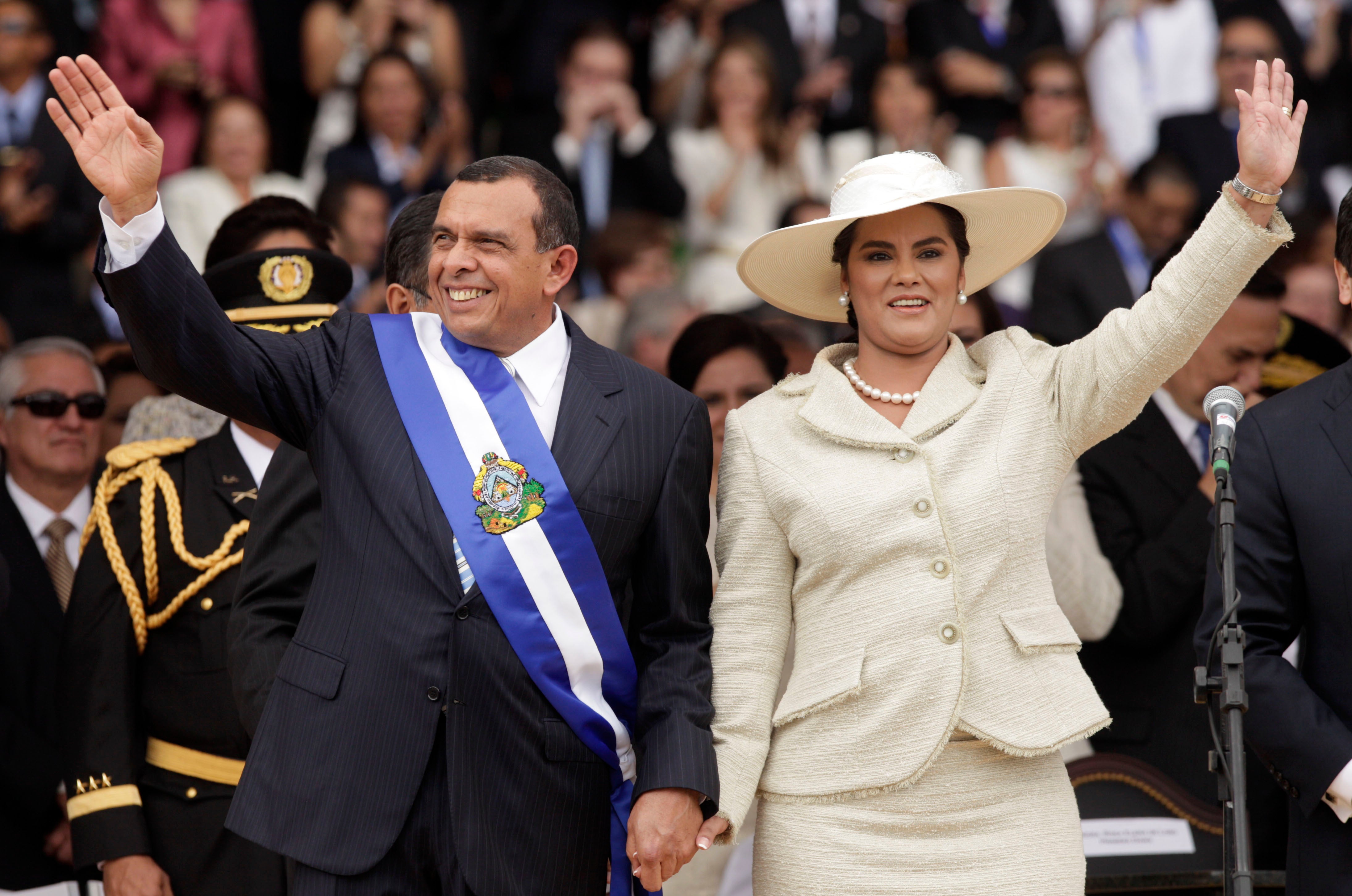US publishes list of corrupt officials in Central America
The U.S. State Department has named more than 50 current and former officials, including former presidents and active lawmakers, suspected of corruption or undermining democracy in three Central American countries

Your support helps us to tell the story
From reproductive rights to climate change to Big Tech, The Independent is on the ground when the story is developing. Whether it's investigating the financials of Elon Musk's pro-Trump PAC or producing our latest documentary, 'The A Word', which shines a light on the American women fighting for reproductive rights, we know how important it is to parse out the facts from the messaging.
At such a critical moment in US history, we need reporters on the ground. Your donation allows us to keep sending journalists to speak to both sides of the story.
The Independent is trusted by Americans across the entire political spectrum. And unlike many other quality news outlets, we choose not to lock Americans out of our reporting and analysis with paywalls. We believe quality journalism should be available to everyone, paid for by those who can afford it.
Your support makes all the difference.The U.S. State Department has named more than 50 current and former officials, including former presidents and active lawmakers, suspected of corruption or undermining democracy in three Central American countries.
Many of the cases were known in Guatemala Honduras and El Salvador but the inclusion of names on the U.S. list buoyed the hopes of anti-corruption crusaders. The list was provided to the U.S. Congress in compliance with the “U.S.-Northern Triangle Enhanced Engagement Act” pushed last year by U.S. Rep. Eliot Engel.
Its release comes at a time that the Biden administration has given new attention to endemic corruption in the region as one of the factors driving Central Americans to migrate to the U.S.
Among the most prominent figures on the list are former Honduras President Jose Porfirio “Pepe” Lobo Sosa and former first lady Rosa Elena Bonilla de Lobo. The State Department report says Lobo Sosa took bribes from a drug cartel and his wife was involved in fraud and misappropriation of funds. Both deny the allegations. Bonilla's conviction on related charges was invalidated by the Supreme Court last year and she is awaiting a new trial.
Perhaps as significant as Lobo Sosa’s inclusion, was the omission of current Honduras President Juan Orlando Hernández. U.S. prosecutors in New York have signaled Hernández as having funded his political ascent with bribes from drug traffickers, but he has not been formally charged. His brother, former federal lawmaker Juan Antonio “Tony” Hernández, was sentenced in New York in March to life in prison.
In El Salvador, former cabinet officials, a judge and the cabinet chief for President Nayib Bukele were placed on the list. Chief of Staff Carolina Recinos has kept a low profile since her name appeared on a shorter State Department list in May, but administration officials say she has maintained her presence in the presidential offices. Thursday’s list said she “engaged in significant corruption by misusing public funds for personal benefit” and participated in a money laundering scheme.
Eduardo Escobar, head of the public accountability organization Citizen Action in El Salvador, said he had met Wednesday with U.S. Undersecretary of State for Political Affairs Victoria Nuland on her visit to the country.
“It's a confirmation of what had been a poorly kept secret,” Escobar said. In some cases, it lent credence to allegations that members of Bukele's government were involved in corruption, as well as members of other political parties. He said now they would have to see if El Salvador's Attorney General's Office takes any action to pursue people on the list.
Bukele's administration did not immediately respond to a request for comment.
In Guatemala, former President Alvaro Colom Caballeros, was accused of involvement in fraud and embezzlement in the case of a new bus system in Guatemala City Current Supreme Court justice Manuel Duarte Barrera allegedly “abused his authority to inappropriately influence and manipulate the appointment of judges to high court positions.” Another high court justice, Nester Vásquez, also allegedly meddled in the selection of judges.
Guatemala's chief anti-impunity prosecutor, Juan Francisco Sandoval, indicated the extent of Guatemala's corruption was far beyond those named on the list.
“I think they are missing a number who have been charged with corruption,” Sandoval said. “In the prosecutor's office, we investigate hundreds of people and hundreds more have been convicted. I think they need to touch the high positions in the corrupt structures, especially those who finance it."
__
Sherman reported from Mexico City.